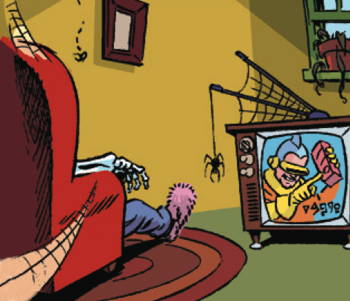March 2021
March 21, 2021
Clothes Form
Butler Baker invented a "clothes form" to prevent clothes from sticking to a person's body in hot weather. It consisted of a scaffolding of wire rings to be worn beneath a person's clothes.In his 1927 patent, Baker asserted that these rings would "maintain clothing spaced from the body of the wearer at all times, thereby overcoming the disagreeable feature of the clothing sticking to the body during warm weather." Furthermore, "the device is simple in construction, light, and constructed in a manner whereby it will not interfere with the bending of the body."
It would be even better if it somehow had a fan at the bottom blowing air over your body. You might look weird wearing it, but at least you'd be cool.

Posted By: Alex - Sun Mar 21, 2021 -
Comments (7)
Category: Fashion, Underwear, Patents, 1920s
Juror Goes Insane
I would totally cite this precedent when trying to get out of jury duty.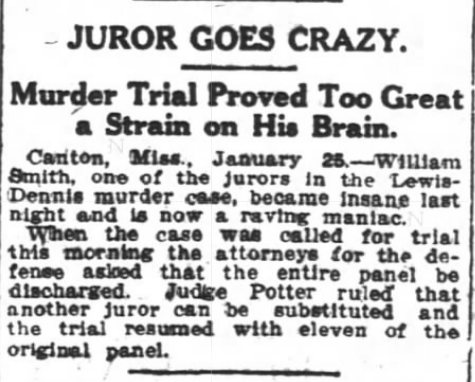
Source: The Atlanta Constitution (Atlanta, Georgia) 26 Jan 1909, Tue Page 9
Posted By: Paul - Sun Mar 21, 2021 -
Comments (1)
Category: Law, 1900s, Mental Health and Insanity
March 20, 2021
Exit Traveler Rescue Kit
The Exit Traveler came on the market in the late 1980s. It was designed to let hotel guests rappel out of their window in the event of a fire.Of course, you had to carry the thing around in your luggage, on the off chance that you got stuck in a burning building and the stairs were inaccessible. Then you had to find something to anchor the device to. And it was one-use only. Perhaps why it never caught on.
Seems that the inventors also tried to get hotels to pre-install them in rooms, anchored to walls. But the hotels probably had visions of guests rappelling out of windows even when there wasn't a fire.
More info: Exit Traveler
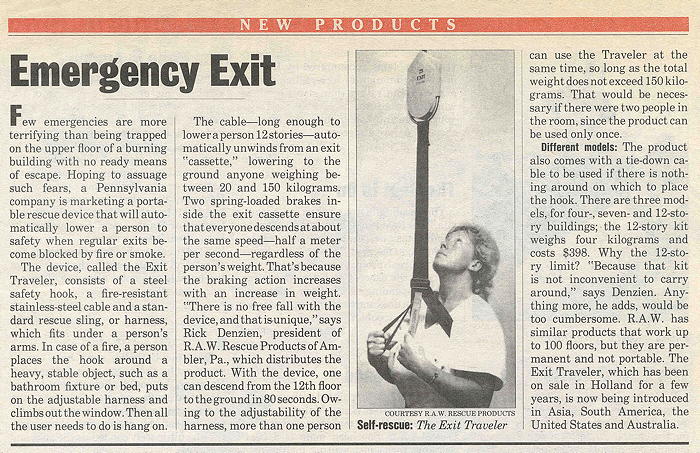
Newsweek - Oct 26, 1987
Posted By: Alex - Sat Mar 20, 2021 -
Comments (4)
Category: Inventions, Hotels, 1980s
Primitive London
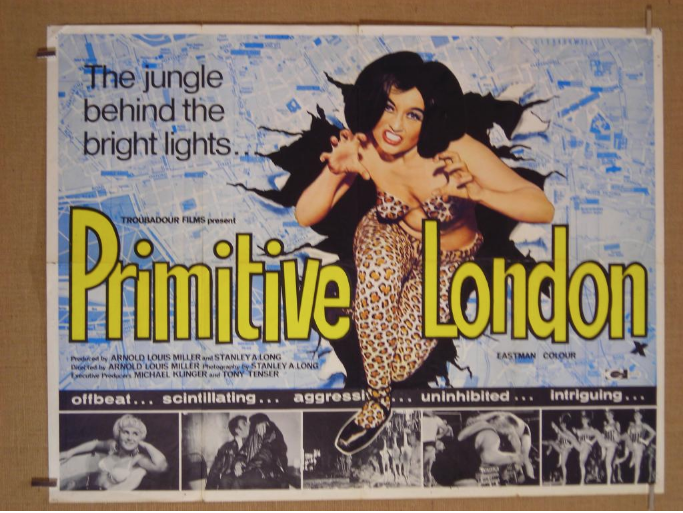
The IMDB page.
Posted By: Paul - Sat Mar 20, 2021 -
Comments (0)
Category: Movies, Exploitation and Grindhouse, 1960s, United Kingdom
March 19, 2021
Name That List, #63
What is this a list of? The answer is below in extended.- A nude dance bar, massage/modeling studio and adult video/bookstore — all in one
- 40,000 dog costumes for Halloween "or other special occasions"
- 9,000 "Calypso Cup Holders"
- A 10-foot wooden giraffe sculpture
- A patent "for a process to convert manure into cattle feed"
- Bear Island outside Ely, Minnesota
More in extended >>
Posted By: Alex - Fri Mar 19, 2021 -
Comments (4)
Category: Patents, Name That List
Illegal Bikini
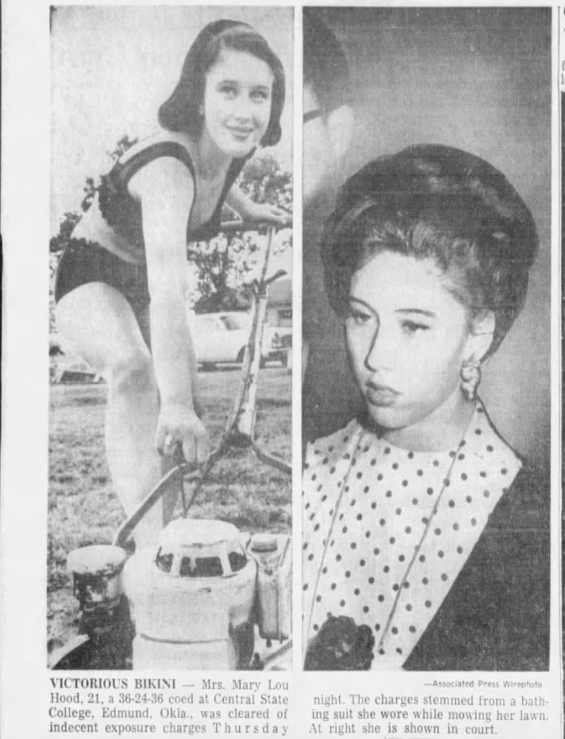
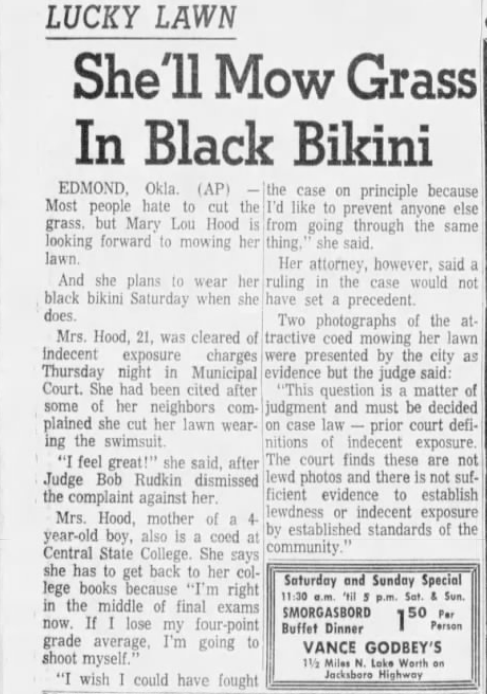
Source:
Fort Worth Star-Telegram (Fort Worth, Texas) 20 May 1966, Fri Page 12
Posted By: Paul - Fri Mar 19, 2021 -
Comments (3)
Category: Domestic, Sexuality, Public Indecency, Scary Criminals, 1960s
March 18, 2021
Bic Disposable Pantyhose
1976: The Bic Pen Corp. decided to branch out into the women's underwear market by introducing a line of disposable pantyhose. The thinking was that their company was already known for making disposable pens and lighters. So why not disposable pantyhose as well? Plus, they figured that female secretaries would be keen to order pantyhose together with other office supplies.
This is now considered to be a classic marketing failure. Matt Haig writes in his book Brand Failures:
The main problem was that the company insisted on using the Bic name. As marketing writer Al Ries has observed, using the same name in unrelated categories can create difficulties. "If you have a powerful perception for one class of product, it becomes almost impossible to extend that perception to a different class," he argues.
The company apparently didn't learn much from this failed product, because in 1989 it introduced Bic Perfume, which is considered to be another classic business blunder.

Chicago Tribune - Apr 3, 1976
Posted By: Alex - Thu Mar 18, 2021 -
Comments (3)
Category: Business, Products, Underwear, 1970s
Kruger and Ward
Posted By: Paul - Thu Mar 18, 2021 -
Comments (0)
Category: Human Marvels, 1910s
March 17, 2021
Goliath Messiah, the backward-running mystic
1938: Bronx-resident Goliath Messiah celebrated his 72nd birthday by running backwards for three miles. This was an annual birthday tradition for him. He attributed his good health to a diet of "tree bark, fruit, green vegetables and a pint of wine daily." Also, he claimed to be a descendant of Xerxes.Later he moved to Death Valley where, he predicted, his daily five-mile hikes would allow him to live to be 150. I haven't been able to find out what age he actually was when he died. I suspect Goliath Messiah wasn't the name the government knew him by, which makes it difficult to get info about him.


Los Angeles Times - Apr 25, 1938

San Bernardino County Sun - July 22, 1941
Posted By: Alex - Wed Mar 17, 2021 -
Comments (0)
Category: Eccentrics, 1930s
Follies of the Madmen #502
Baby Napoleon plus goat = ?Source.
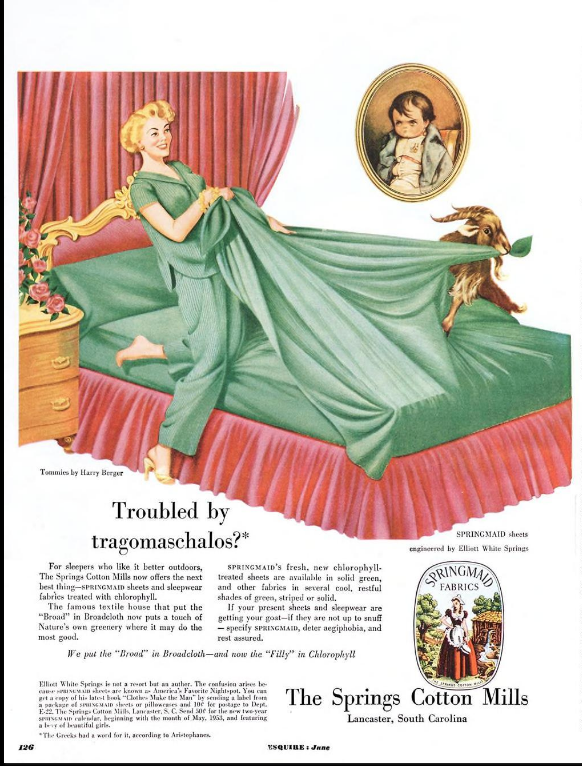
Posted By: Paul - Wed Mar 17, 2021 -
Comments (3)
Category: Ambiguity, Uncertainty and Deliberate Obscurity, Animals, Business, Advertising, Domestic, 1950s
| Get WU Posts by Email | |
|---|---|

| Who We Are |
|---|
| Alex Boese Alex is the creator and curator of the Museum of Hoaxes. He's also the author of various weird, non-fiction books such as Elephants on Acid. Paul Di Filippo Paul has been paid to put weird ideas into fictional form for over thirty years, in his career as a noted science fiction writer. He has recently begun blogging on many curious topics with three fellow writers at The Inferior 4+1. Chuck Shepherd Chuck is the purveyor of News of the Weird, the syndicated column which for decades has set the gold-standard for reporting on oddities and the bizarre. Our banner was drawn by the legendary underground cartoonist Rick Altergott. Contact Us |
